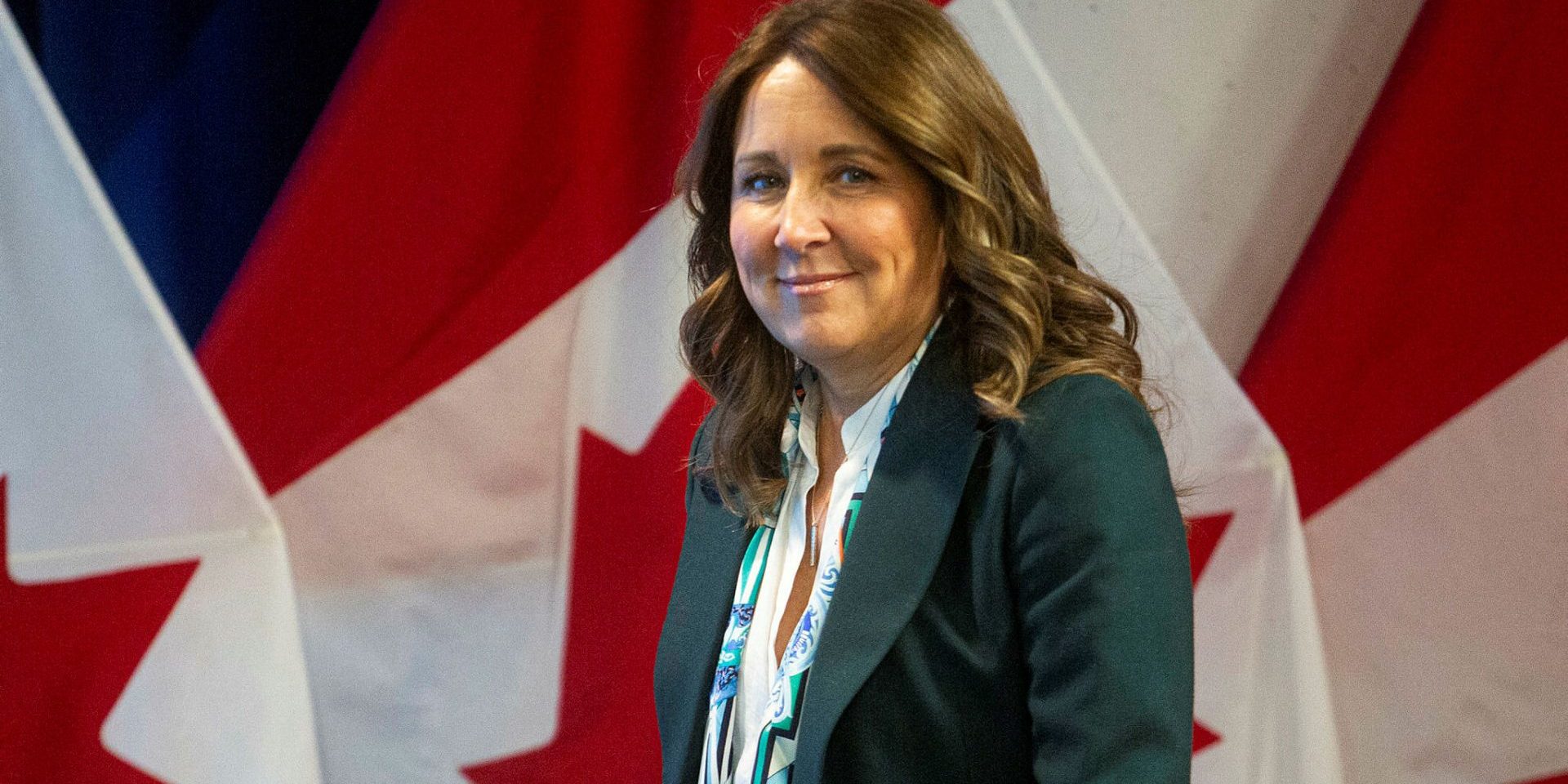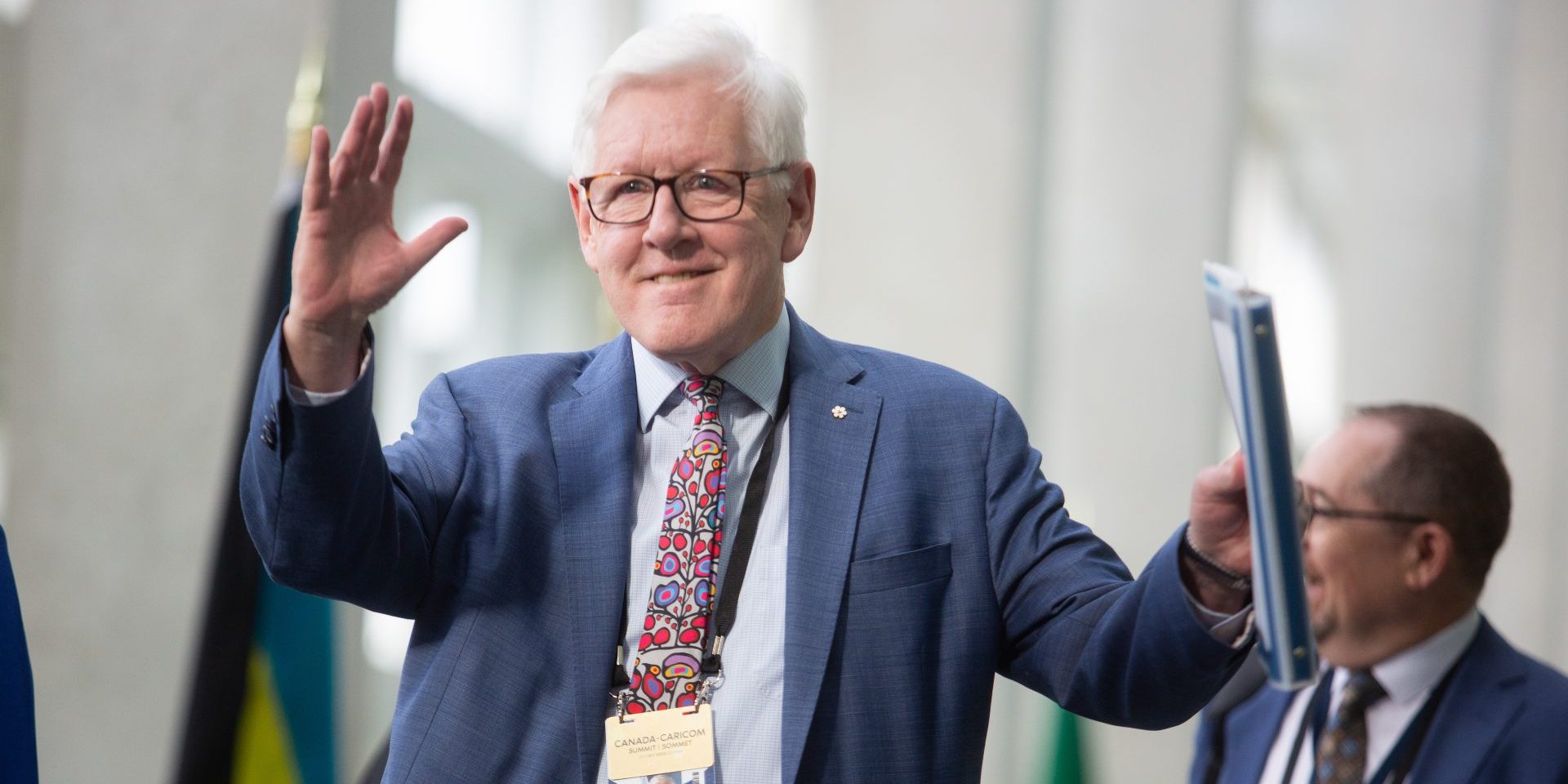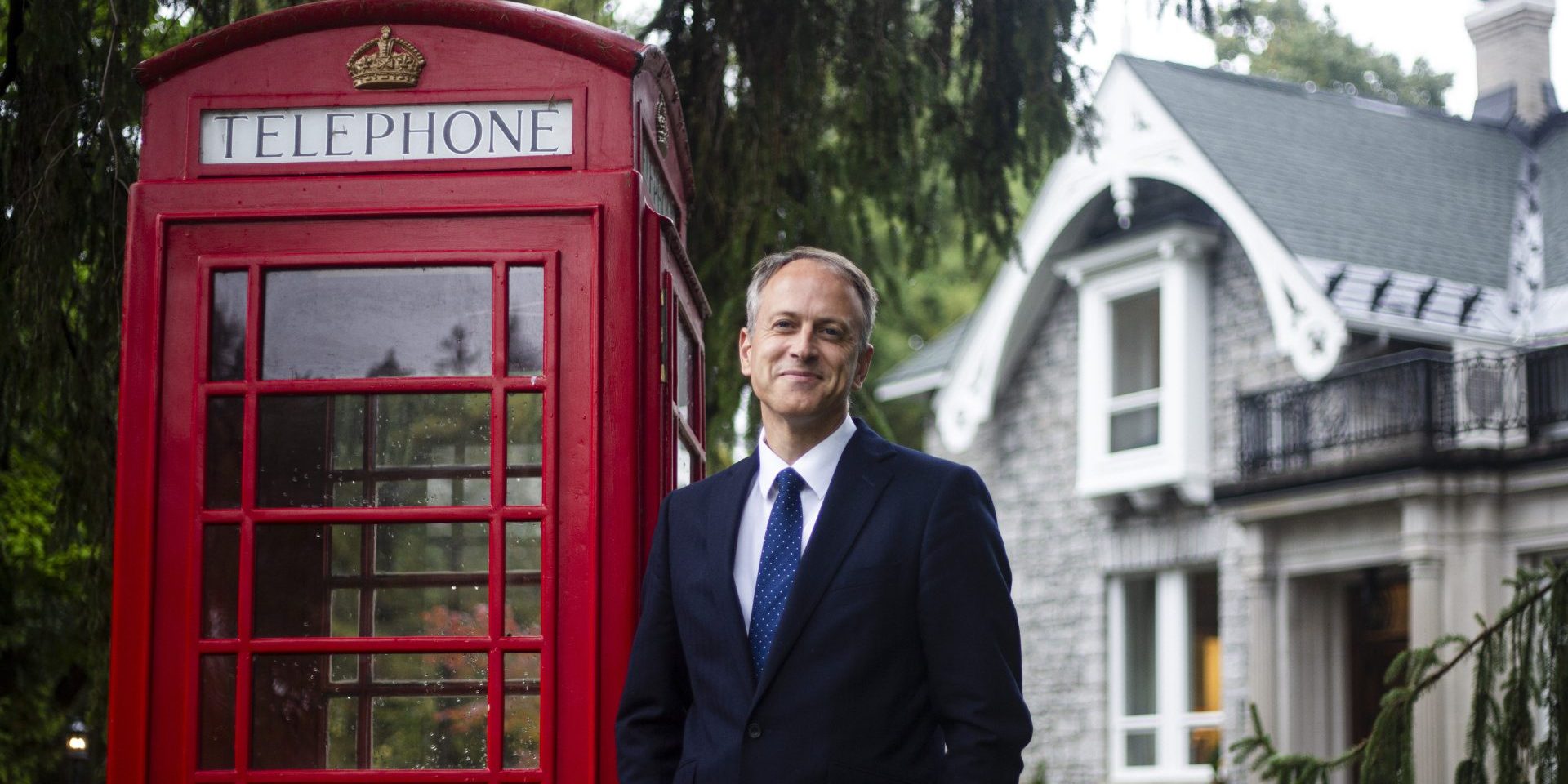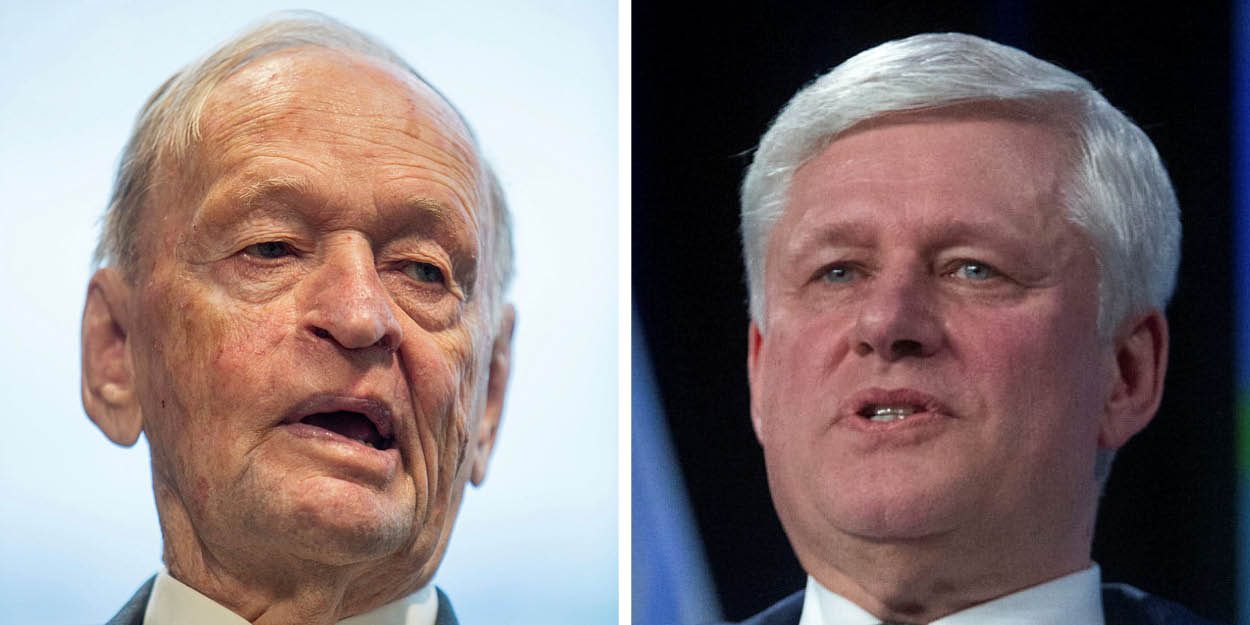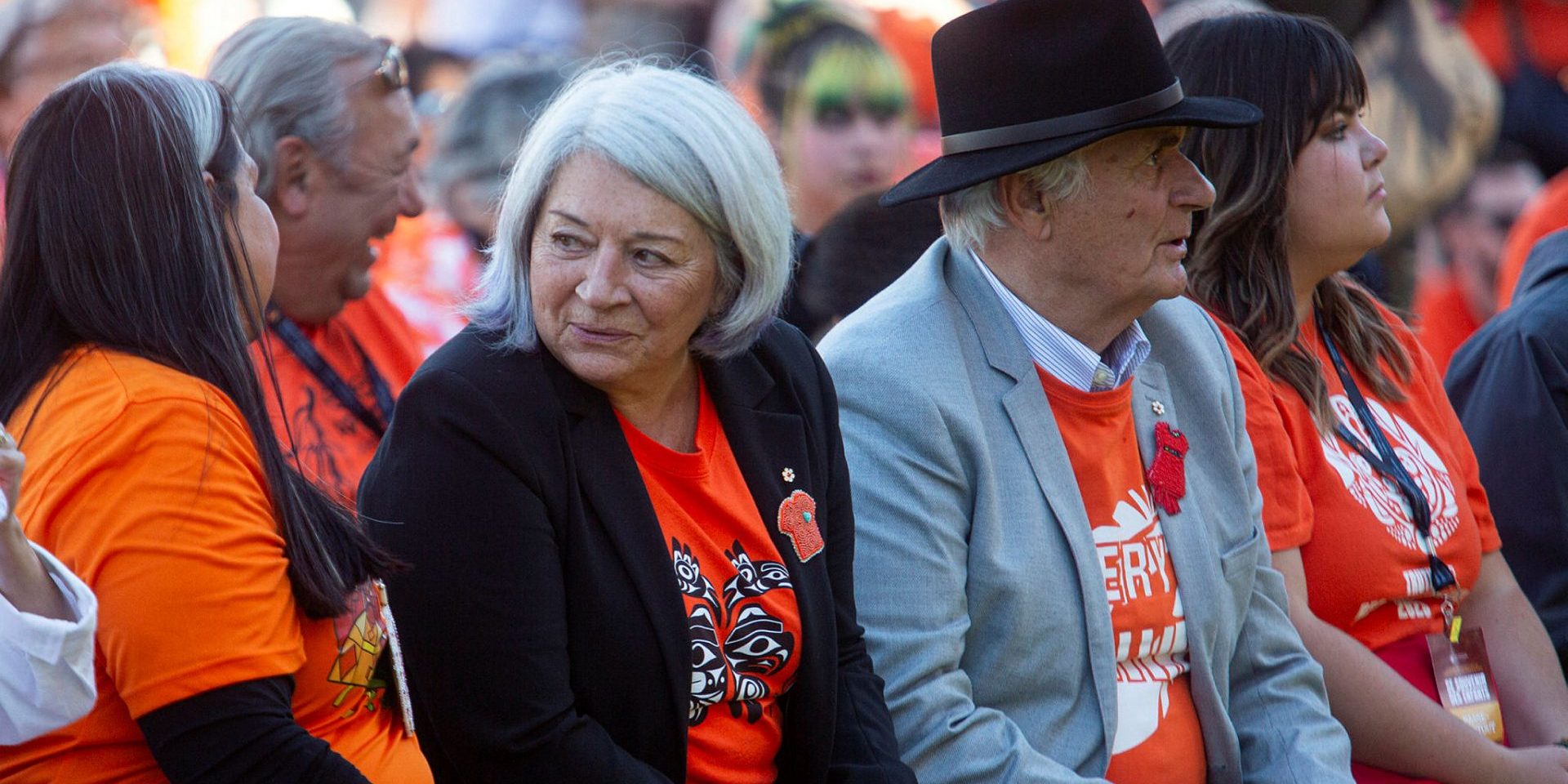Books, Big Ideas, Q&As
Reconciliation starts local, says author of guide book for non-Indigenous allies
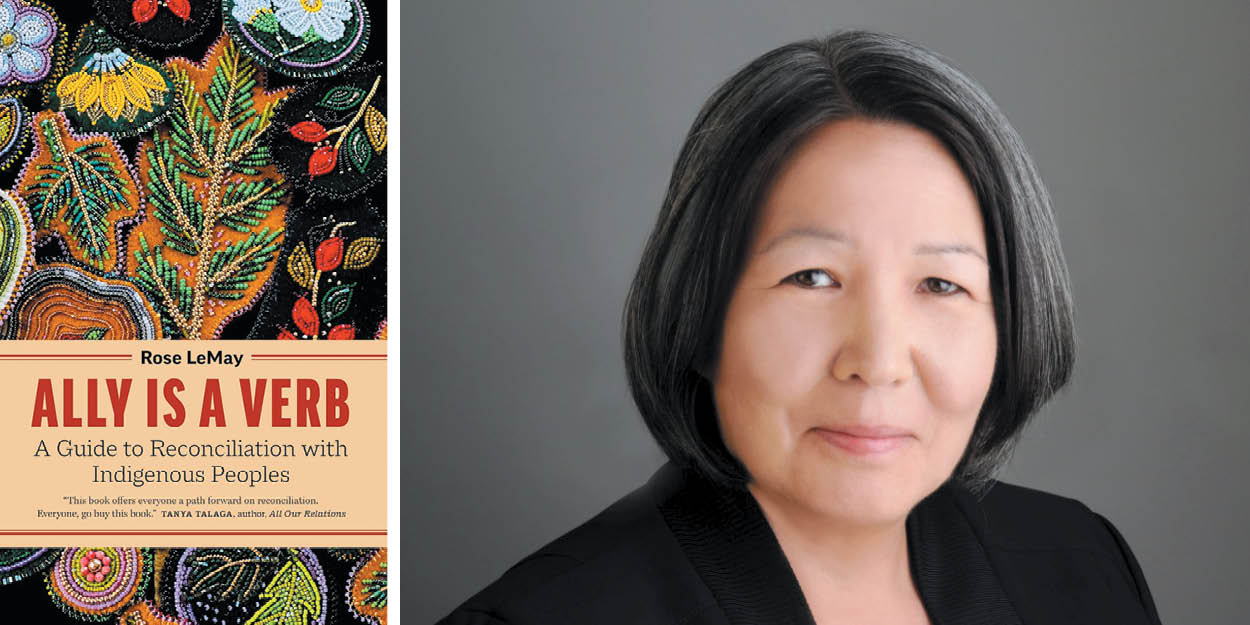
Rose LeMay’s latest book is an answer to the question she’s heard repeatedly from well-meaning would-be allies to Indigenous Peoples: “But what do I do?”
Ally Is a Verb: A Guide to Reconciliation with Indigenous Peoples is, as LeMay explains in her introduction, “for non-Indigenous allies who already know they want to do something, but are not sure about the next steps.”
Over seven chapters, Ally Is a Verb details the injustices inflicted on Indigenous Peoples, the ongoing effects of those decisions, and the importance of listening, reflecting, and taking action to ensure that reconciliation can be achieved in Canada.
LeMay warns that the target audience—non-Indigenous settlers—should get comfortable with being uncomfortable, and use their privilege to take action.
She provides resources along the way—like suggested next steps and additional reading recommendations—and makes clear that this book is not the be-all and end-all of being an ally. Her book is intended to start the conversation and learning journey, not to complete it.
LeMay is Tlingit from the Taku River Tlingit First Nation on the West Coast, and is the CEO of the Ottawa-based Indigenous Reconciliation Group. A columnist at The Hill Times, LeMay says she hopes readers will “continue to stand up for Indigenous inclusion and wellbeing, and for reconciliation.”
The following Q&A, conducted over email, has been edited for length and clarity.
Why did you decide to write this book? “I often hear allies ask what they should do. This book is a change-management approach to reconciliation: do change locally and it influences others while it pushes the country to do better.
“If we do Indigenous inclusion and reconciliation locally in our workplaces and neighbourhoods, then it easily becomes part of national discussions. If we don’t do it locally, then it is too easy to ignore at a political or national level.
“Reconciliation is local, and Canadians can make it happen.”
Ally Is a Verb is explicitly targeted at non-Indigenous people. Why write a book for this particular audience? “The bulk of the work of reconciliation is changing the systems which exclude or treat Indigenous Peoples differently—justice, policing, racism in health care, etc. These systems, for the most part, are led and managed by non-Indigenous Peoples. It’s up to non-Indigenous people to change these systems so that Indigenous Peoples are not treated worse than others.”
Are there particular groups of non-Indigenous people whom you hope will read this book? “I’m hopeful that non-Indigenous people who say that reconciliation will take generations will read this book. Indigenous Peoples don’t have the luxury of waiting generations for change.
“The necessary step is to risk one’s own comfort to challenge those who disagree with reconciliation and the rights of Indigenous people.”
from Ally Is a Verb: A Guide to Reconciliation with Indigenous Peoples
“Like any societal shift, reconciliation needs a sense of urgency to spark us to do something now. Take action like we need to do reconciliation for this generation of Indigenous kids—they need to benefit from reconciliation.
We are in the midst of a federal election campaign. How do you rate the major parties in terms of their commitments to reconciliation? “I’m concerned that issues of importance to Indigenous Peoples have not received much airtime this election. To date, there’s no party doing better than a “C” on making space for reconciliation.
“But the Conservatives are failing spectacularly on reconciliation by keeping a known residential schools denialist as candidate in B.C.—a very chilling message for Indigenous voters in the riding and across the country.”
What else should the candidates be talking about? “It’s becoming clear now that fascism is a huge risk in America, and that fascism requires a whitewashing of factual history in order to squash DEI [diversity, equity, and inclusion], and consolidate power in a few.
“Things are getting so harsh in America that the lives of LGBTQ2S, people of colour, and Indigenous Peoples are at risk. If we want to protect Canadian democracy, then we need candidates who have accurate knowledge of history, and are practicing real inclusion. How are candidates listening and learning from voters who are LGBTQ2S+, from people of colour, from Indigenous peoples?”
What is the biggest takeaway you would like readers to get from this book?
“I hope that readers take away a sense of commitment to never forget the facts of our history, and a sense of resolve to continue to stand up for Indigenous inclusion and wellbeing, and for reconciliation. I hope that readers take away a sense of hope that we are on the road to reconciliation, that we are stronger as a country because of it.
“Canada is Indigenous strong.”
Ally Is a Verb: A Guide to Reconciliation with Indigenous Peoples, by Rose LeMay, Page Two, 200 pp., $24.95.
The Hill Times





 LICENSING
LICENSING PODCAST
PODCAST ALERTS
ALERTS